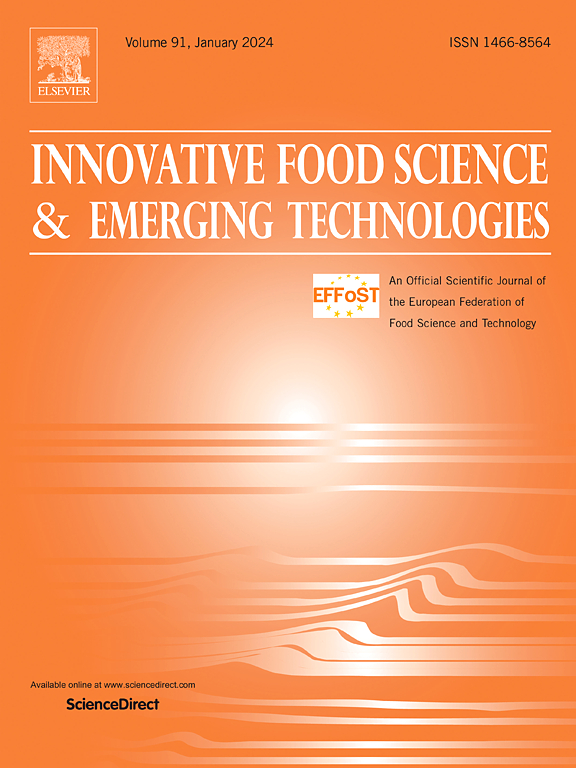A comprehensive review of blockchain with artificial intelligence integration for enhancing food safety and quality control
IF 6.3
1区 农林科学
Q1 FOOD SCIENCE & TECHNOLOGY
Innovative Food Science & Emerging Technologies
Pub Date : 2025-04-03
DOI:10.1016/j.ifset.2025.104019
引用次数: 0
Abstract
Food safety and quality control are some of the biggest hurdles in today's global food supply chain, with complex networks, contamination risks, and limited transparency undermining efficiency. This review introduces a novel hybrid framework that uniquely integrates blockchain technology, Artificial Intelligence (AI), and the Internet of Things (IoT) to address these persistent issues. An analysis of 525 studies conducted between 2019 and has led to the selection of 70 papers that focus on the review of AI applications utilizing blockchain technology. The proposed model does not take the conventional route in that it solves critical issues regarding scalability, computational requirements, and integration complexities with IoT-based data collection and energy-efficient algorithms applied in supply chain logistic processes and operations. This method enhances the real-time processing of supply chain logistics while respecting privacy and conforming to standard practices. The model promotes unprecedented transparency, trust, and operational efficiency in food safety by integrating AI, blockchain, and IoT, thus generating new and scalable solutions to protect consumer interests and safety in logistics. This combination improves the trust of consumers also, enhances the safety of food and logistics, improving novel safety solutions for food.
区块链与人工智能集成以加强食品安全和质量控制的综合综述
食品安全和质量控制是当今全球食品供应链中的一些最大障碍,复杂的网络、污染风险和有限的透明度削弱了效率。本文介绍了一种新颖的混合框架,该框架独特地集成了区块链技术、人工智能(AI)和物联网(IoT)来解决这些持续存在的问题。对2019年至2019年期间进行的525项研究的分析导致选择了70篇论文,这些论文专注于审查利用区块链技术的人工智能应用。该模型不走传统路线,因为它解决了供应链物流流程和运营中应用的基于物联网的数据收集和节能算法的可扩展性、计算需求和集成复杂性等关键问题。这种方法在尊重隐私和符合标准实践的同时增强了供应链物流的实时处理。该模型通过整合人工智能、区块链和物联网,提高了食品安全领域前所未有的透明度、信任度和运营效率,从而产生了新的、可扩展的解决方案,以保护消费者的利益和物流安全。这种结合也提高了消费者的信任,提高了食品和物流的安全性,为食品提供了新的安全解决方案。
本文章由计算机程序翻译,如有差异,请以英文原文为准。
求助全文
约1分钟内获得全文
求助全文
来源期刊
CiteScore
12.00
自引率
6.10%
发文量
259
审稿时长
25 days
期刊介绍:
Innovative Food Science and Emerging Technologies (IFSET) aims to provide the highest quality original contributions and few, mainly upon invitation, reviews on and highly innovative developments in food science and emerging food process technologies. The significance of the results either for the science community or for industrial R&D groups must be specified. Papers submitted must be of highest scientific quality and only those advancing current scientific knowledge and understanding or with technical relevance will be considered.

 求助内容:
求助内容: 应助结果提醒方式:
应助结果提醒方式:


